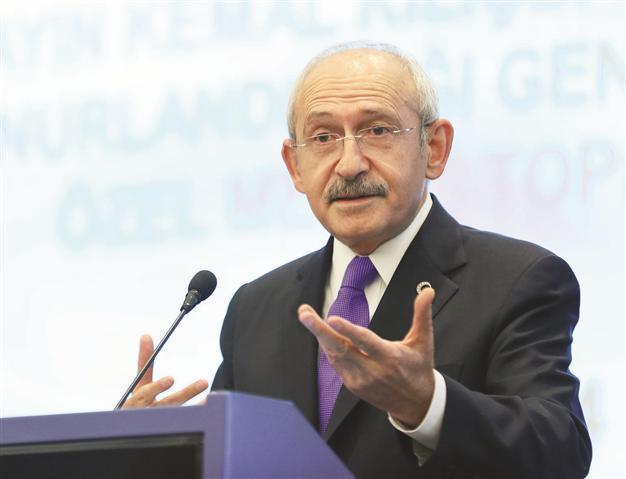Opposition calls on Turkish President Gül to veto law on Internet
ISTANBUL

The president should take up a position on behalf of democracy and freedom, main opposition Republican People’s Party leader Kılıçdaroğlu says. AA Photo
Turkey’s opposition parties have called on President Abdullah Gül to veto a controversial Internet law, while the international community has also raised concerns over freedoms and rights in the country.Main opposition Republican People’s Party (CHP) leader Kemal Kılıçdaroğlu demanded Feb. 7 that Gül veto the controversial Internet bill, which was approved by Parliament early on Feb. 6.
“The president should take up a position on behalf of democracy and freedom. The impartiality of the president means something different,” Kılıçdaroğlu told reporters in Istanbul on Feb. 7. “To say that ‘regulations against laws come and I sign them despite clearly [problems with them]’ degrades the office of the president. The president pledges loyalty to the Constitution. And he has to do what is necessary. A president cannot defend bans. A president cannot defend legal regulations which were brought by a government saying they will limit freedom,” he said according to the Doğan news agency.
Kılıçdaroğlu has underlined that Turkey needs a policy which needs criticism from the media instead of one that intervenes in the media.
Nationalist Movement Party (MHP) leader Devlet Bahçeli also lashed out at the Internet law, tweeting Feb. 6 that the media, which was supposed to be impartial and free, has become a toy operated via remote-control.
“The guards of Internet are in a queue to pressure the freedom of information in Turkey,” Bahçeli wrote.
Peace and Democracy Party (BDP) Şırnak deputy Hasip Kaplan also criticized the bill, sarcastically calling on the president to veto it. “I will unfollow Mr. President on Twitter if he does not veto this bill,” said Kaplan.
The United States also voiced concerns on the proposal, saying it was not “compatible with freedom of expression.”
“We share the concerns recently expressed by the OSCE’s representative on freedom of the media – and there was a whole statement that I’d point you to – that these proposed measures are not compatible with international standards on freedom of expression,” State Department Spokesperson Jen Psaki said during a press briefing Feb. 6.
“They also have the potential to significantly impact free expression, investigative journalism, the protection of journalist sources, political discourse, and access to information over the Internet. So those are all areas we would be concerned about,” she added.
Dunja Mijatovic, the OSCE’s top official responsible for the media, said in a statement on Jan. 31 that the bill could further restrict freedom of expression in Turkey.
“If the new measures are adopted, they would place a disproportionate burden on Internet service and hosting providers,” Mijatovic said following an assessment of the amendments included in the bill.
Psaki said Washington was actively monitoring the new legislation, confirming that Washington’s position was in line with that of the OSCE.
















